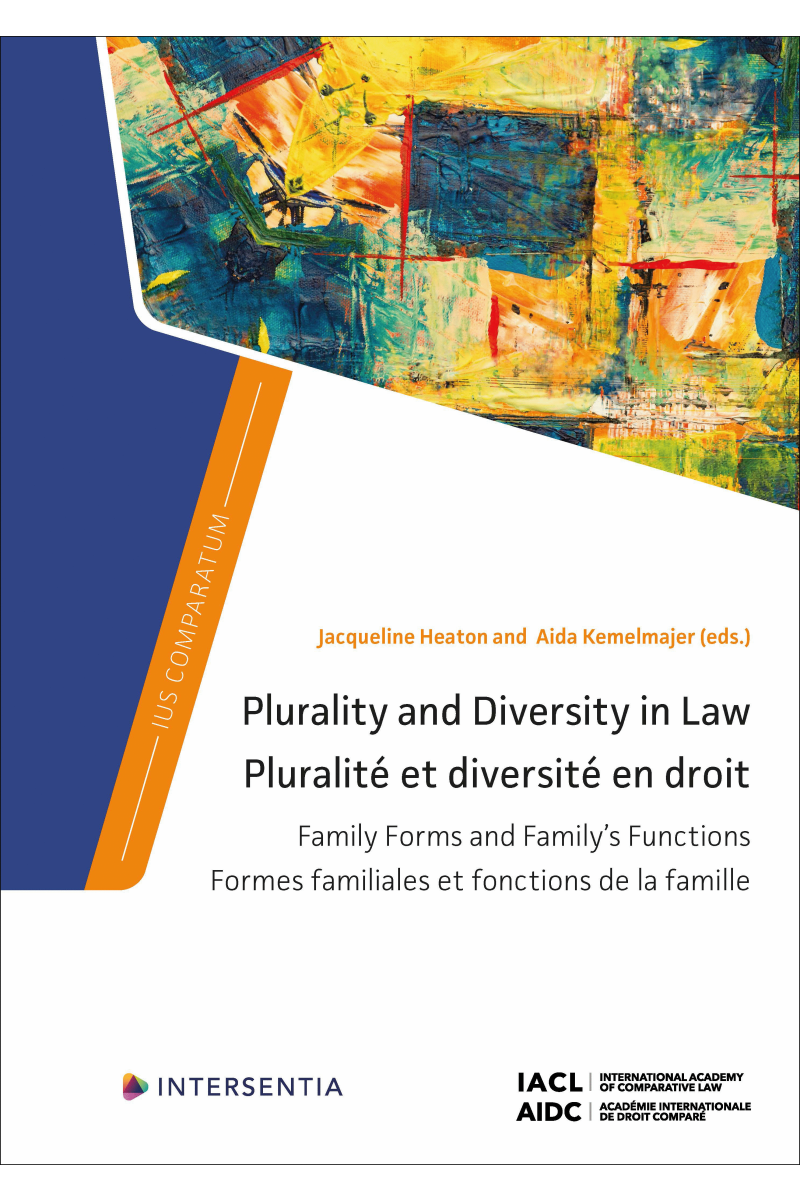 maestro
mastercard
visa
maestro
mastercard
visa

Plurality and Diversity in Law: Family Forms and Family's Functions

This book is based on reports on the theme ‘Plurality and Diversity in Law: Family Forms and Family’s Functions’ presented at the Fourth Thematic Congress of the International Academy of Comparative Law in Pretoria, South Africa in October 2021. The contributions consider two main issues. The first is whether family law recognises that a child can have multiple parents. The focus falls on stepfamilies; families where children are raised in more than one household because, for example, their parents jointly exercise custody after separation or have never shared a household but share parenting responsibilities; polygamous families; families where children have been adopted but maintain links with their biological families; families where children are cared for in terms of a kafala arrangement; families where a child was born as a result of donor-assisted reproductive technology using one male and one female gamete; families where a child was born as a result of ‘three-parent’ medical technology; and families where a child was born as a result of surrogacy. The contributions show that, in most of the jurisdictions, family law recognises a maximum of two legal parents and that, in some jurisdictions, those two parents must be one female person and one male person. Except in the case of surrogacy, the two legal parents are usually the woman who gives birth to the child and her spouse/partner. In some jurisdictions, multiple parents are recognised to some degree after adoption. Multiple parents are not recognised in the case of kafala but they are recognised in polygamous families in some jurisdictions. The second main issue is which family functions are recognised and favoured by the law, and whether the presence of children in the family makes a difference in this regard. The main functions identified in the contributions are the provision of economic security and financial support to children and economically weaker family members; having and raising children; being a place where people take care of each other; providing a special bond to the members of the family; and being a refuge of love and companionship. The two functions which predominate are the provision of economic security and financial support to children and economically weaker family members, and having and raising children. Generally, the family’s functions are not viewed differently depending on whether or not the family includes children. However, if the family does include children, the function of raising children may be elevated above the other functions and the scope of the provisions of economic security and financial support and of caretaking responsibilities is increased.
JACQUELINE HEATON is a professor who lectures Family Law at the University of South Africa. She is former editor of the South African Law Journal and the Annual Survey of South African Law. She was also guest editor of Speculum Juris – Special Issue on Family Law: 2009 (2), published in 2010. She is the author/co-author of more than 30 books (some of which are in their 6th edition) and many articles in law journals, as well as editor/co-editor of three books.
AIDA KEMELMAJER is a former judge of the Supreme Court of Mendoza, Argentina and a former professor of the Universidad Nacional de Cuyo, Argentina. She is an author/co-author of more than 30 books and was a member of the commission that prepared the draft of the Civil and Commercial Code of the Argentinian Republic. She is doctor honoris causa of various universities in France, Argentina, and Peru, as well as Professor in many Judiciary Schools of Latin America.
| Type of product | Book |
|---|---|
| Format | Hardback |
| EAN / ISSN | 9781839703058 / 9781839703737 |
| Series name | Ius Comparatum |
| Weight | 2200 g |
| Status | Available |
| Number of pages | xvi + 488 p. |
| Access to exercice | No |
| Publisher | Intersentia |
| Language | English |
| Publication Date | Mar 13, 2023 |
| Available on Strada Belgique | No |
| Available on Strada Europe | No |
| Available on Strada Luxembourg | No |
Downloads
- Table of Contents and Preliminary Pages
Jacqueline Heaton, Aida Kemelmajer - General Report: Family Forms and Family’s Functions – A Comparative Perspective
- Rapport General: Formes et fonctions familiales – Une perspective comparative
- Argentina
- Australia
- Austria
- Belgique
- Canada
- Croatia
- Denmark
- England and Wales
- Germany
- Greece
- Italie
- Japan
- Luxembourg
- Poland
- South Africa
- The Netherlands
- Turkey
- Vietnam
- Appendix: Questionnaire
- Index